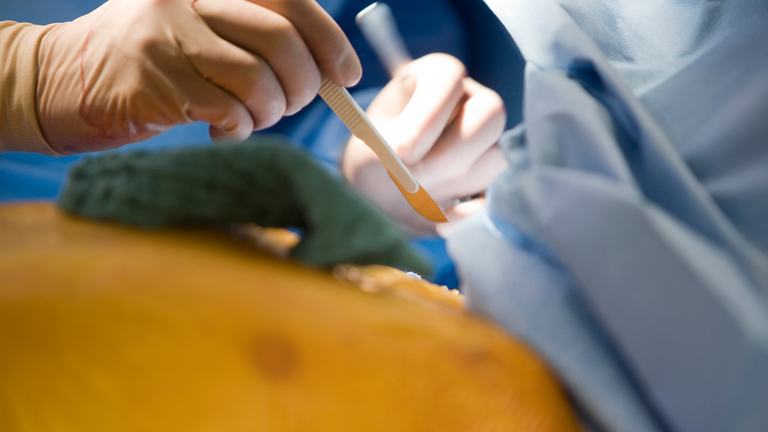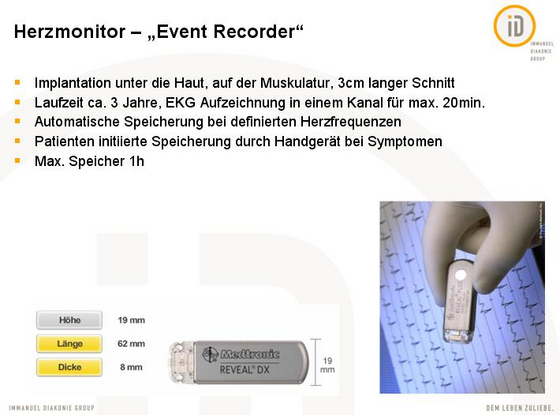
Event recorder
An event recorder (also known as a loop recorder) is a small device that is implanted under the skin and used in the diagnosis of cardiac arrhythmias. Event recorders fulfill the role of a miniature ambulatory ECG device, and are mainly used to treat patients who experience recurrent syncope (fainting spells) of unknown origin.
Contact
What is an event recorder?
An event recorder (also known as a loop recorder) is a small monitoring device - approximately the size of a USB stick - that is implanted under the skin and used to diagnose arrhythmias by recording the cardiac events associated with them.
How does an event recorder work?
The implantation of an event recorder is indicated if the patient experiences recurrent syncope (fainting spells) with complete loss of muscle tone, and no underlying cause for these symptoms can be identified despite a thorough investigation using a wide range of diagnostic techniques. The device can be used to record data on relevant cardiac arrhythmias for a duration of approximately 3 years. In more than 90% of cases, further follow-up investigations will allow the physician to establish with certainty whether the patient's symptoms are caused by cardiac events. In certain cases, this diagnostic strategy may also be combined with home monitoring (the remote monitoring of recorded data).

Treatment
The device is implanted under local anesthesia. It is implanted through an incision 3cm in length, and positioned under the skin but above the layer of muscle inside the chest. The event monitor effectively functions as a miniature ambulatory ECG device by continuously recording the heart's electrical activity. Recording starts as soon as a pre-defined heart rate is reached. If the patient experiences symptoms, recording can also be started manually (patient-activated).
Follow-up treatment
Follow-up treatment consists of regular follow-up visits and the analysis of recorded ECG data. Patients can choose to attend follow-up appointments at the Pacemaker Outpatient Clinic or visit their local cardiologist.
Case study
- 2 episodes of syncope within the past 6 months. Patient underwent cardiac and neurologic investigations, with unremarkable results.
- An event recorder was implanted. The patient was re-admitted following another syncopal event. The device's memory chip contained the ECG recordings shown below.
- Evidence of 3rd degree AV block with long delays. Syncope occurred around these events.
- No new syncopal events were recorded following the implantation of a dual-chamber pacemaker.
Where can I find out more about event recorders?
General information
Deutsche Gesellschaft für Kardiologie (German Cardiac Society):
dgk.org
General information
Deutsche Herzstiftung (German Heart Foundation):
herzstiftung.de
